We don’t push our children to study. We don’t force them to sit with their noses buried in books. In our homeschooling approach, our children focus on the essential minimum, the core curriculum that is necessary for them to pass the classification exams and progress to the next grade. However, despite this minimalistic approach, our children are constantly learning.
How is it possible? Let me explain further.
★★★
O tym przeczytasz
- 1 The core curriculum is the foundation. Everything else is an addition.
- 2 Fear is an illusion – homeschooling in practice
- 3 What is included in the curriculum for the first and second grade of primary school?
- 4 How does our homeschooling look like in practice?
- 5 Unschooling is a process, and a process takes time.
- 6 Why do children need school? School and future competencies
- 7 Time for lessons. Even more time for… childhood.
- 8 The platform is online, so does it mean additional screen time?
- 9 Transitioning from a “no screen” philosophy to learning how to use technology
- 10 Do our children lack contact with peers?
- 11 What do we do here to ensure that our children have contact with other children?
- 12 How will our homeschooling continue in the future?
The core curriculum is the foundation. Everything else is an addition.
I already mentioned this at the very beginning of our homeschooling journey. The core curriculum in the lower grades of primary school consists of several fundamental topics in mathematics, Polish language, and natural sciences that children should master before moving on to the next stage, grades 4-6. It focuses on practicing writing, reading, counting, getting to know the surrounding world, and drawing simple conclusions from it.
Every parent who decides to switch to homeschooling with their child and receives approval from the school’s administration, where the child is enrolled, receives a list of topics from the class teacher. These topics outline what the child should learn during the school year and correspond to the core curriculum prescribed in the Polish education system.
★★★
Fear is an illusion – homeschooling in practice
When we received guidelines from our children’s teachers about what would be assessed in the classifying exams for the next grade (Jas to 2nd grade, Mania to 3rd grade), we felt relieved. Apart from one or two topics that required some extra attention, the rest were actually skills that an average seven or eight-year-old can handle without difficulty (I intentionally use the term “average” because I’m aware that there are children with various challenges for whom developmental norms are established individually).
★★★
What is included in the curriculum for the first and second grade of primary school?
I won’t copy the entire ministerial regulation here, as you can easily find it online. I will just show you a few examples. A child finishing the first grade should be able to recognize all the letters of the alphabet, maintain proper handwriting in notebooks, form singular and plural nouns, solve equations with unknown variables in the box, read the full hours on a clock, arrange words in alphabetical order, and so on.
The second grade is slightly more complex, as it involves further development of reading and writing skills. Additionally, it includes the ability to add and subtract numbers up to one hundred (up to twenty with crossing the tens threshold), constructing their own sentences, participating in short skits, recognizing geometric shapes, reading the time on a clock face, reading temperature on a thermometer, reading weight on a scale, and so on.
★★★
How does our homeschooling look like in practice?
I have to admit that initially I was diligently sticking to our schedule for Polish lessons. After a few weeks, I realized that it wasn’t the right approach for our family. Why do I say “for the family” and not just for the children? Because I am also a part of all this as a mom. I understood that what matters more than just going through the motions of lessons is what the children actually gain from it and how I feel about it. A few weeks ago, I even made a Reels on Instagram about it – it perfectly captures how our homeschooling looks like.
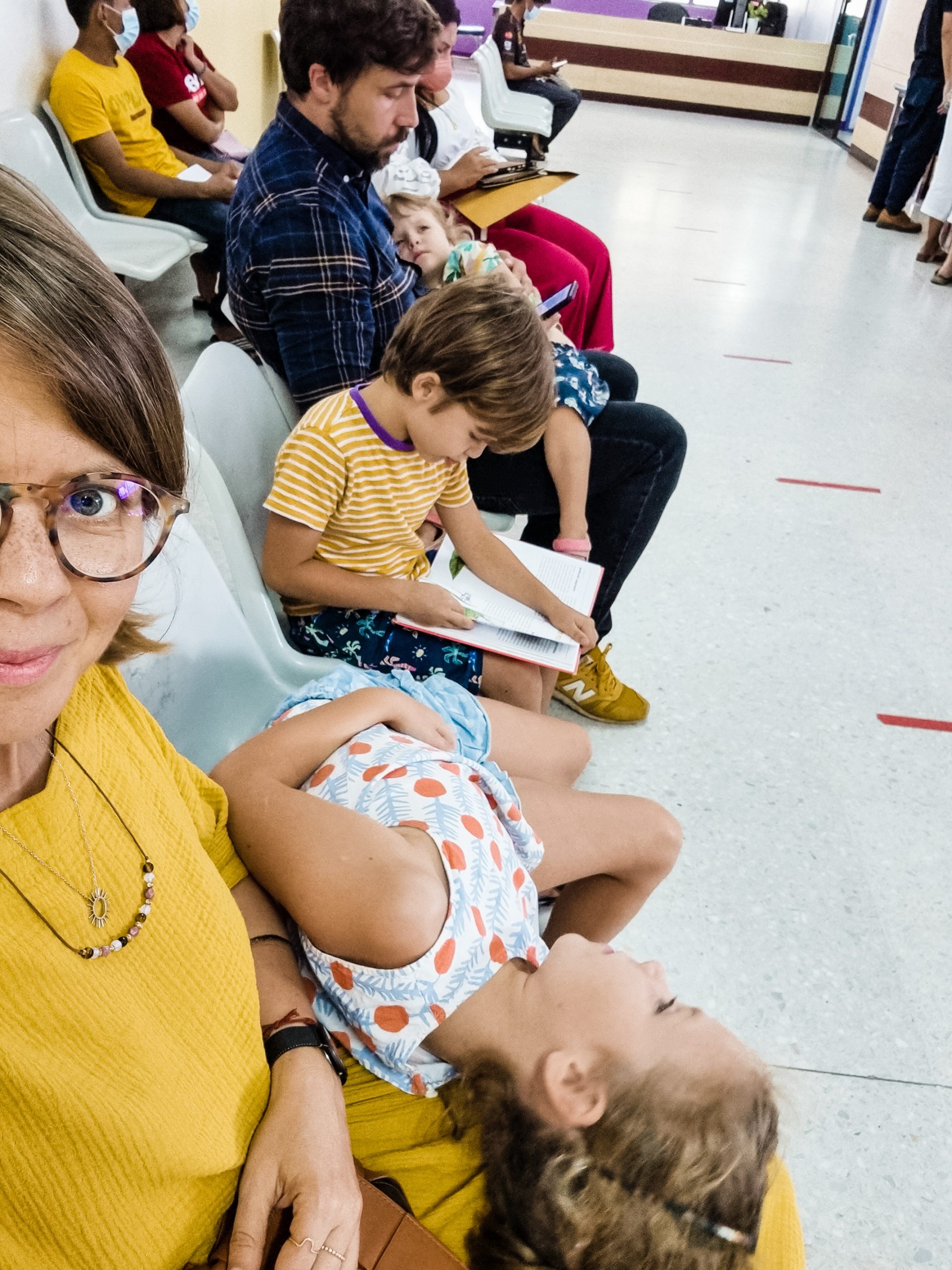


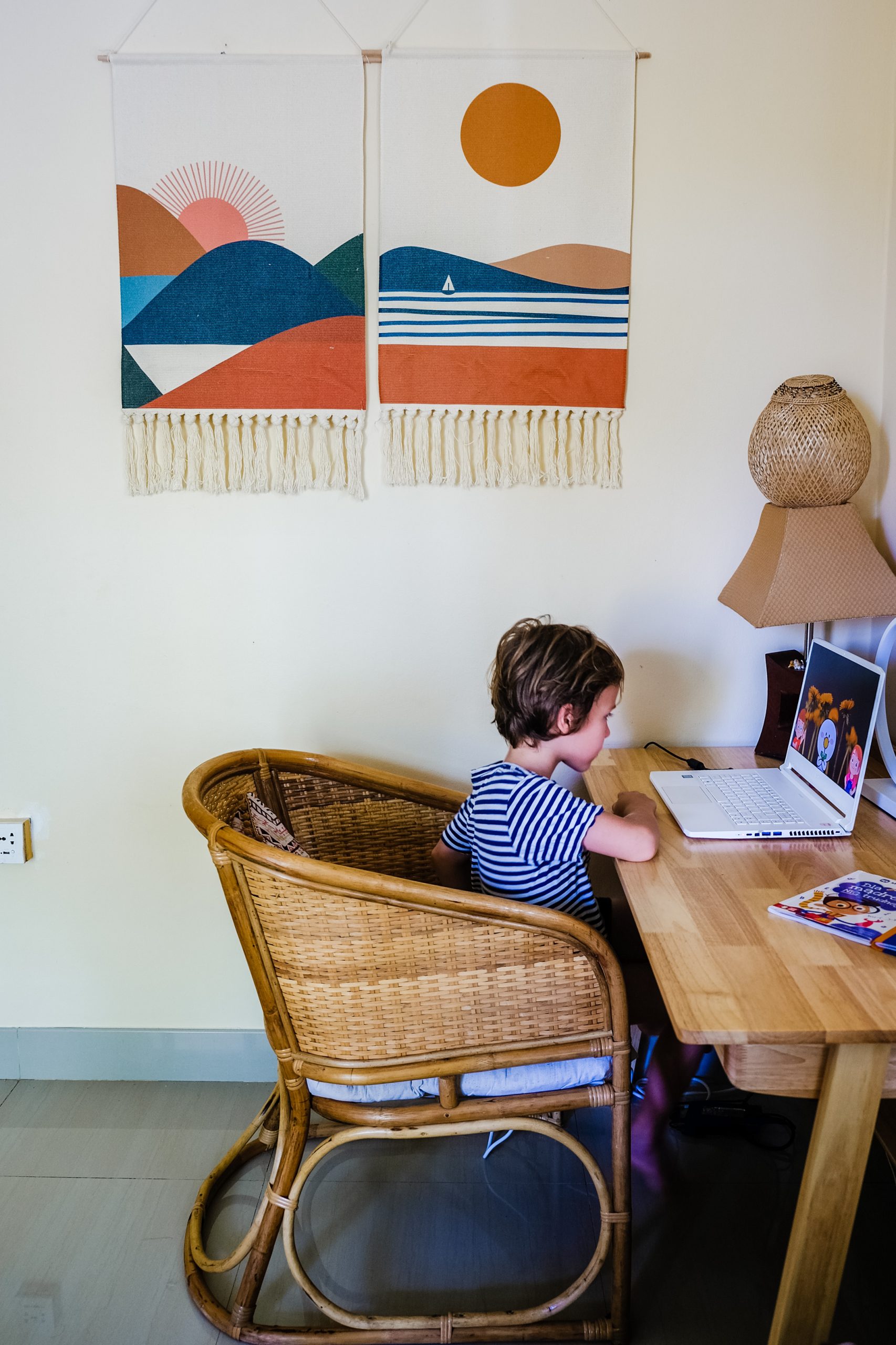
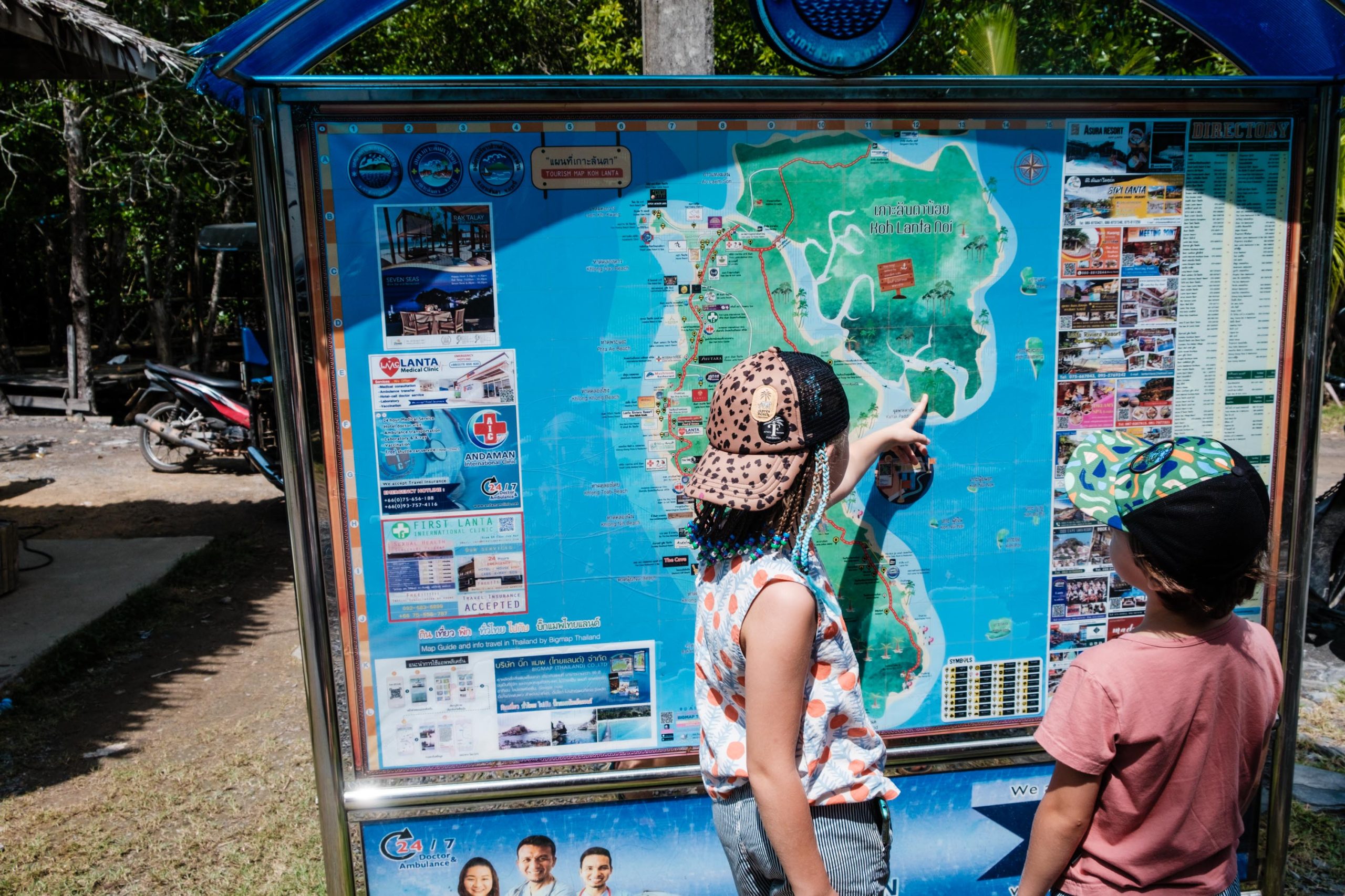
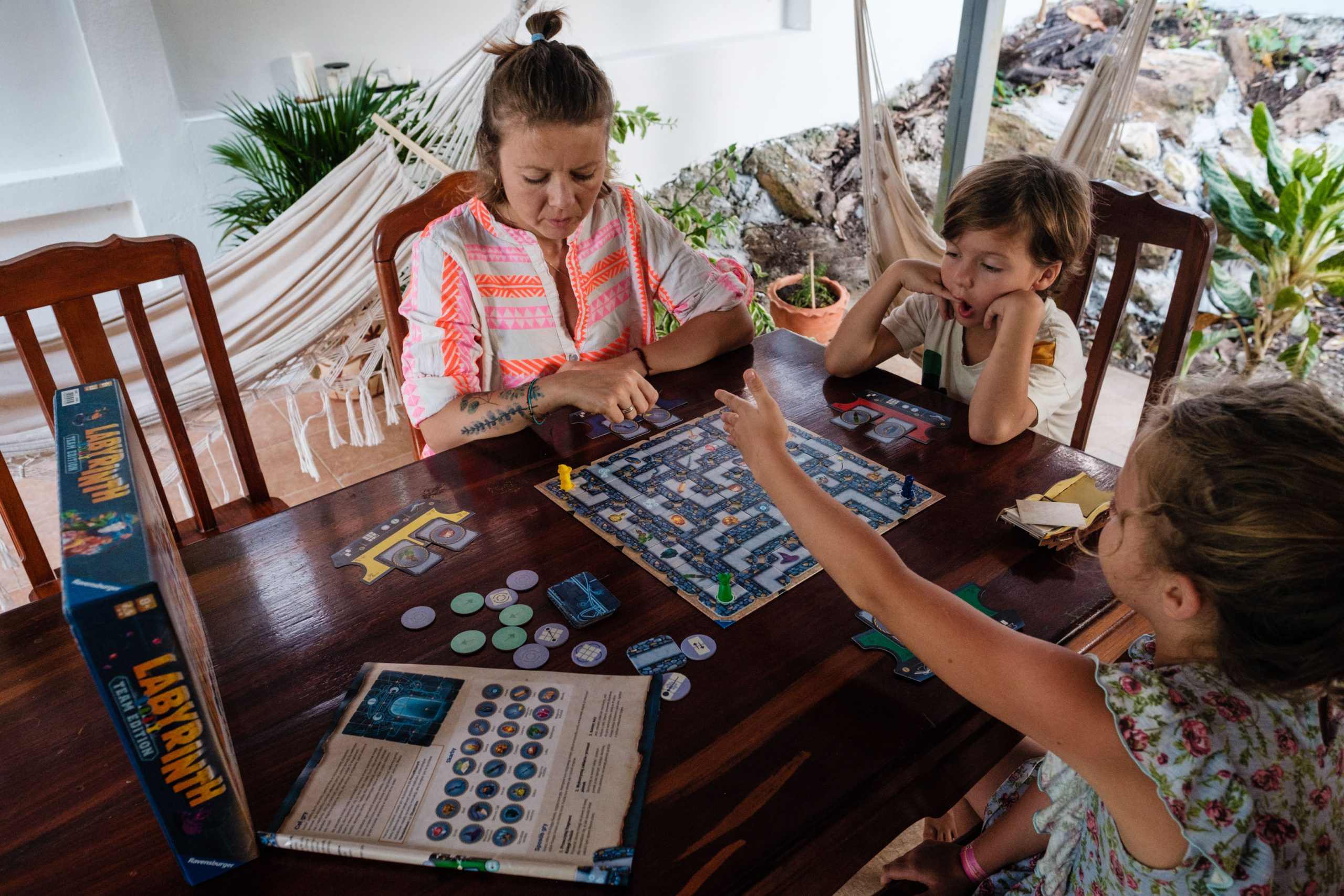
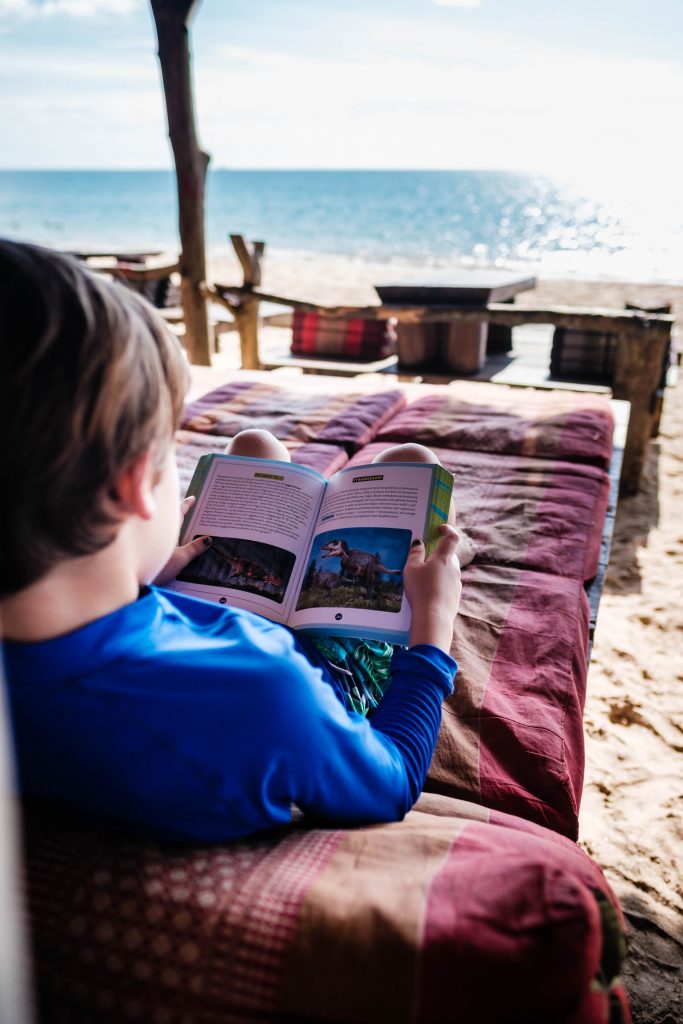
★★★
Unschooling is a process, and a process takes time.
The process of “unschooling” began for me long before our children transitioned from a public school in Warsaw to homeschooling in Thailand. I myself grew up in a family of teachers (both my parents and half of my relatives are teachers). During my interdisciplinary studies, I focused on child development, psychology, and how our brains learn. I read a lot, listened, and talked to experts in informal education (you can listen to some of my podcasts (in polish), for example, here: “Homeschooling – Parent’s Whim or Real Need for Children?” or here: “I Never Went to School”). I knew that the Polish education system was not keeping up with the changing conditions of our lives and was not preparing our children for what their adulthood would look like.

Ultimately, after our year-long experience in a public primary school in Warsaw, we decided that we wanted to try something different. Despite the wonderful teachers and school administration (warm greetings to all of you!), the system itself simply no longer resonated with us. We wanted to experience something else.
We asked ourselves some fundamental questions…
Why do children need school? School and future competencies
Actually, why do children really need school? Research by psychologists, observations by therapists, and studies of people’s lives from around the world all point to one thing. The current education system, which is implemented in most schools, focuses on outcomes. It emphasizes achievements (although there are exceptional schools, and kudos to them!).
The system does not take into account something as difficult to measure as the “well-being of a person’s life,” their social competencies, their ability to cope with stress, resilience to stress, unpredictability of life, and constantly changing conditions in which we live. It does not consider climate changes that we all experience, it does not foster empathy, it does not teach asking questions, questioning unfair grades, or responding when someone is harmed.
We are not concerned with our child memorizing the structure of a shoe or knowing all the rules for applying orthographic exceptions (although I must admit, as a Polish language expert, I had a lot of stress associated with that and couldn’t imagine it otherwise). We care about our children’s ability to find the information they need, to find their way when they get lost (literally and figuratively), to assess the risks associated with their actions, including financial ones. We want them to be able to manage their budget. We want them to read with understanding, to collaborate in a group, to build relationships with people from around the world and from different cultures, and to know how to react when someone crosses their boundaries.
And most importantly, we want our children to find their own path in the future.
School will not teach them all of this. Life and experience will. And they need time for that. Homeschooling allows us to provide them with that opportunity.
★★★
Time for lessons. Even more time for… childhood.
That’s why I knew that if we decide to switch to homeschooling with our children, we will utilize a simple tool that saves our time (both parents’ and children’s) while covering the curriculum. We chose to collaborate with the Home Education Center (in polish), which created a Platform for children in grades 1-8 of primary school. The platform contains all the material from school, including the curriculum. And what is very important to me is that it aligns with the principles of Education 4.0 and the 21st-century competencies. It’s not overloaded with theory but includes many interactive exercises and questions for independent thinking.
The organization of the material is also brilliantly done: everything is divided into specific lessons and weeks of study. Parents don’t have to worry about creating a “lesson plan” or spend time preparing materials from the curriculum. And the children know exactly what they need to do.
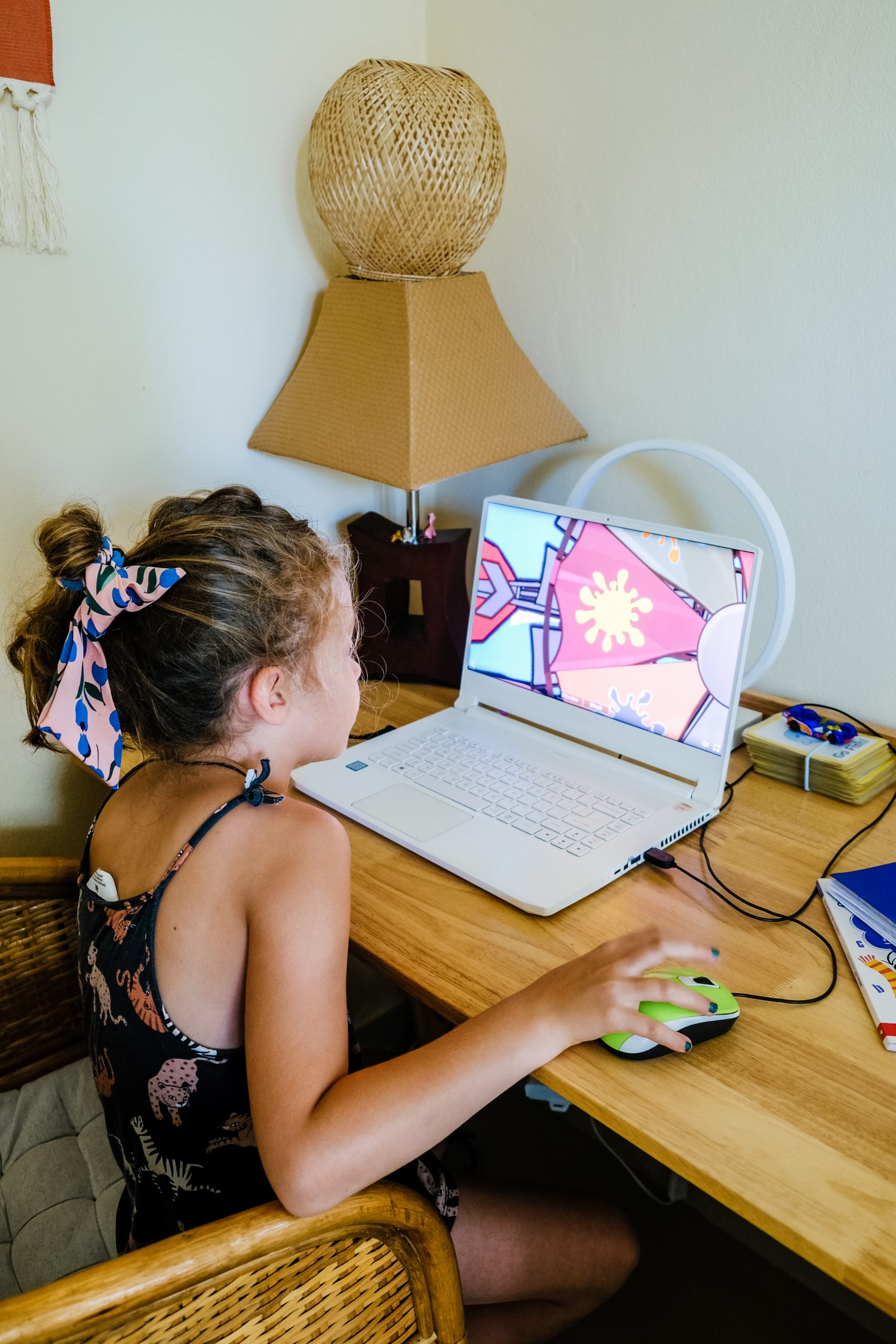


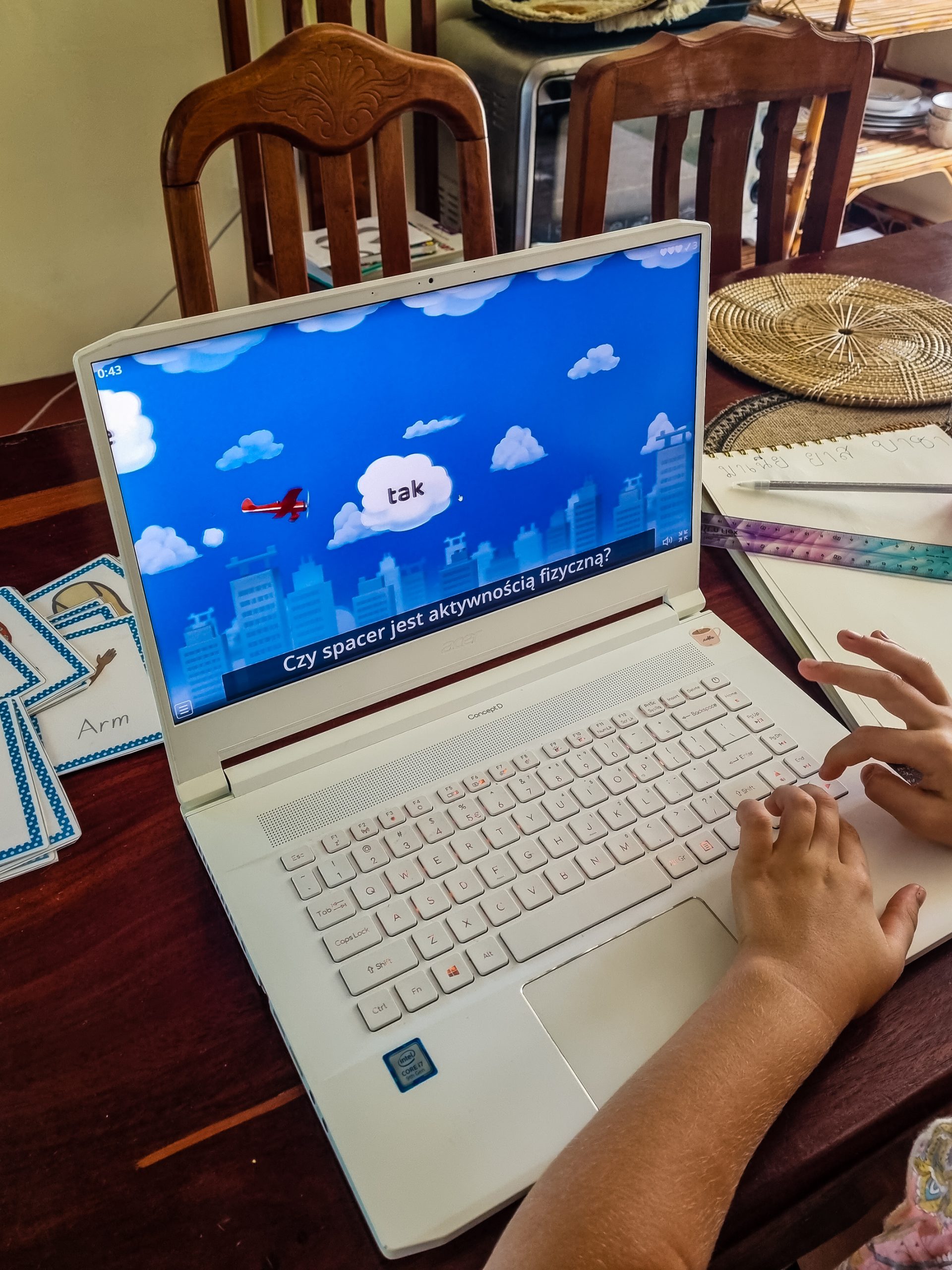
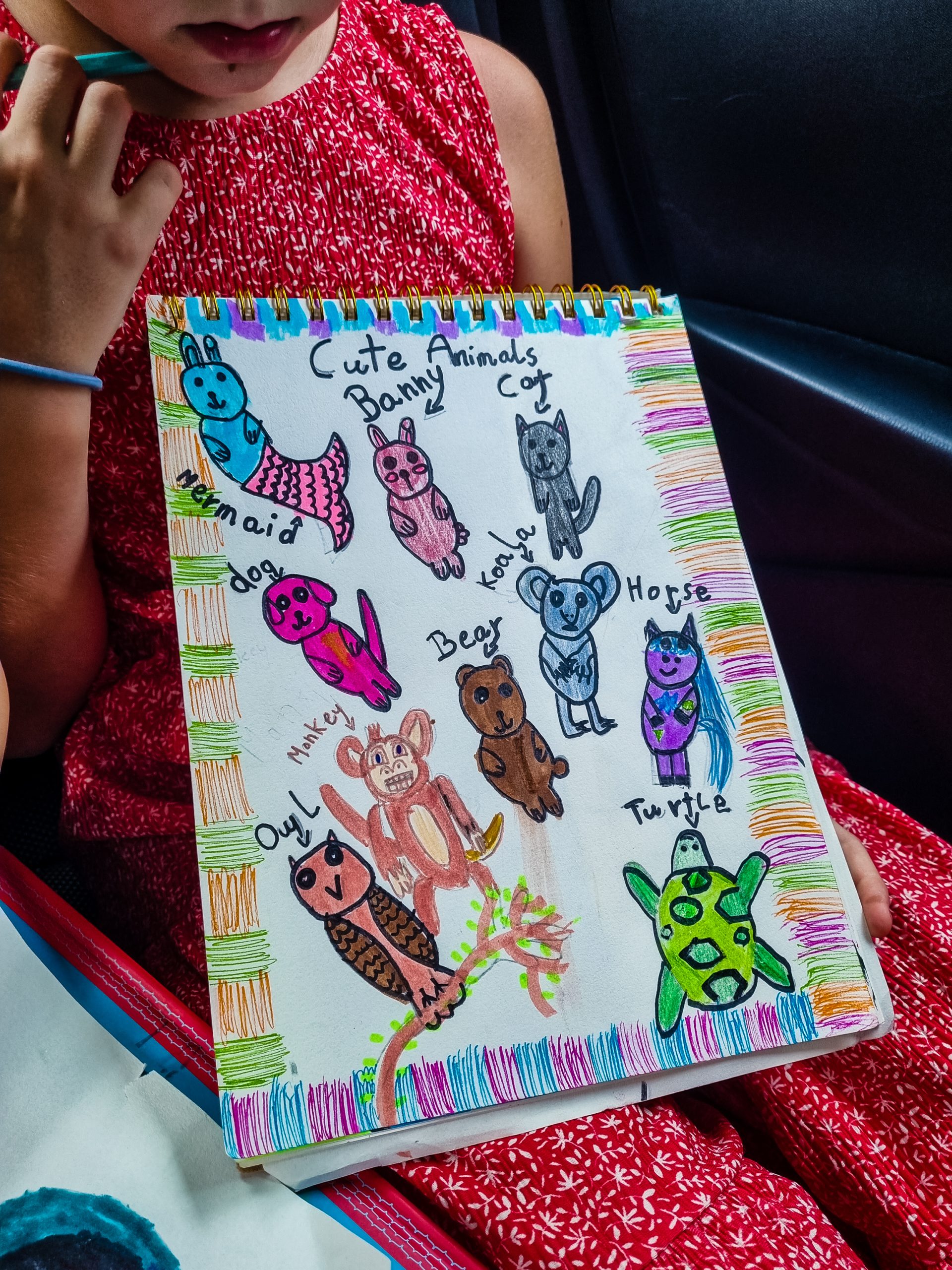
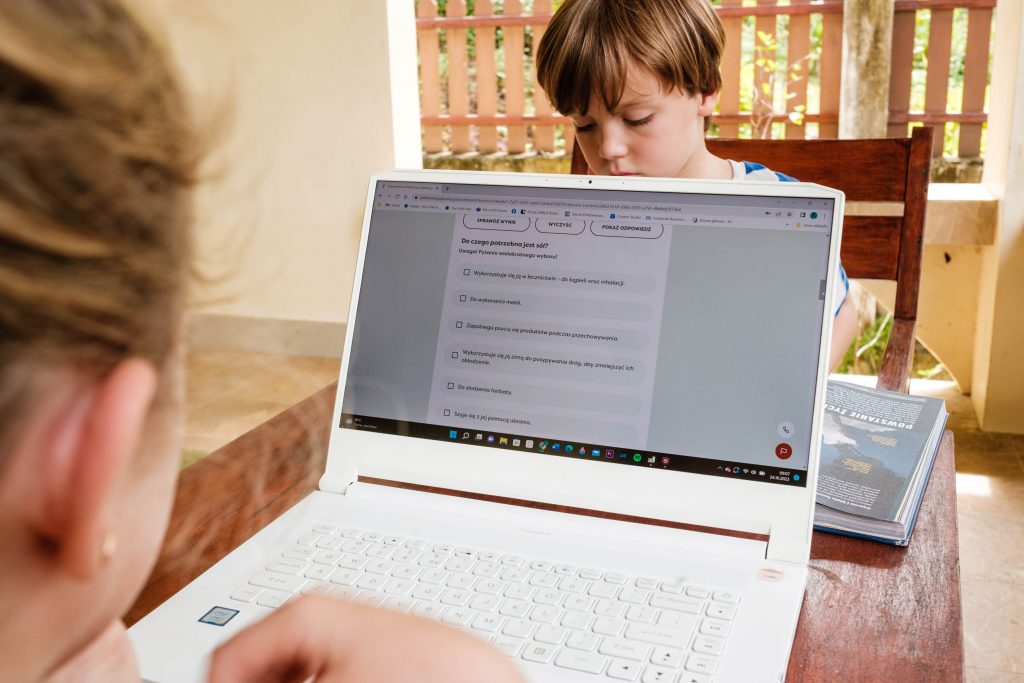
And our entire family has time for living: exploring interesting topics with the kids, playing games, reading books, taking walks on the beach, swimming, cooking together, baking cookies, going on excursions, spending time with other children, playing with the dog, drawing, painting, climbing trees, taking care of animals.
Time for boredom and pondering about blue almonds.
Time for silence.
And time for immersing ourselves in a new culture.
Children have time for their childhood, and we have time to be parents. Without rushing, without rigid schedules.
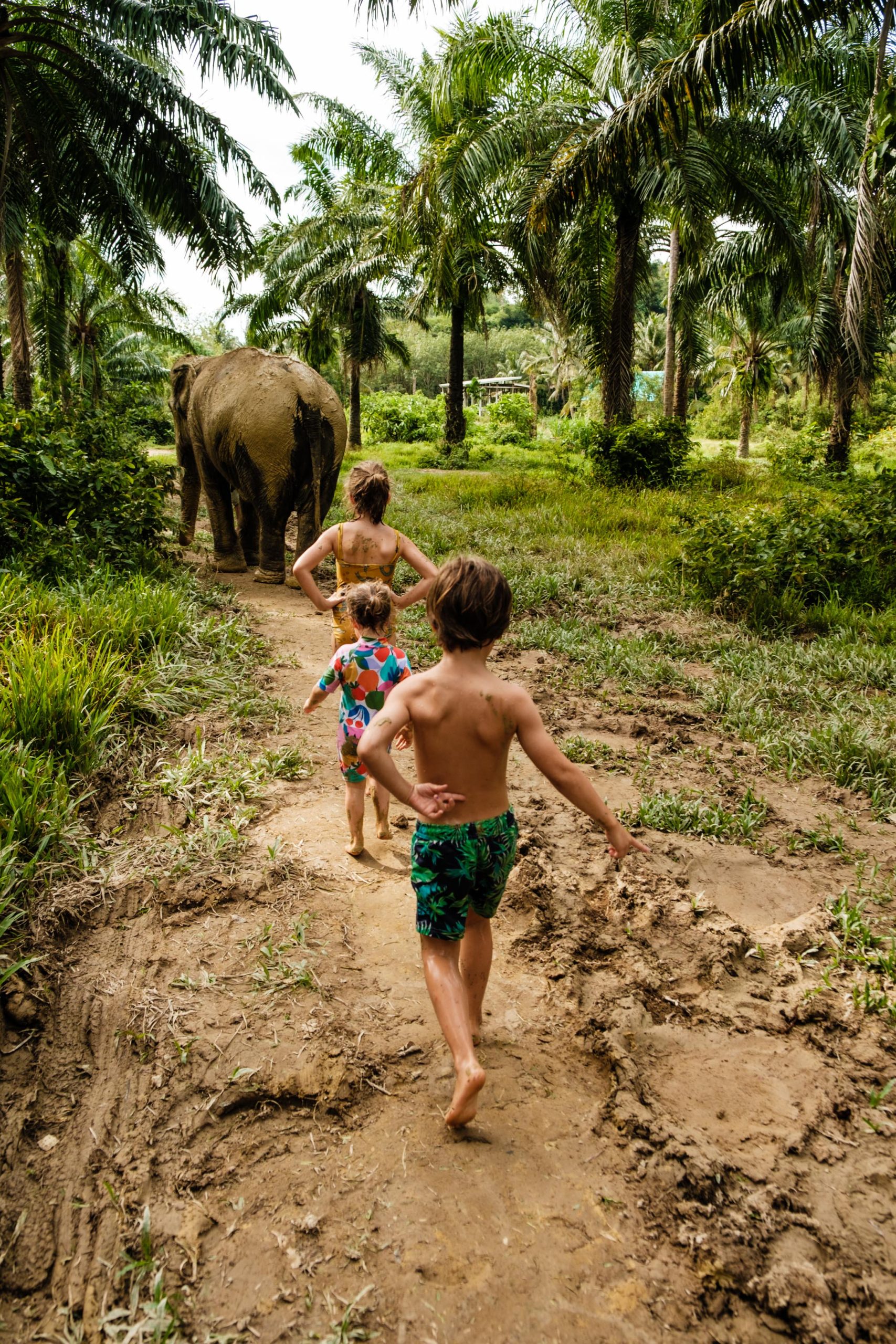
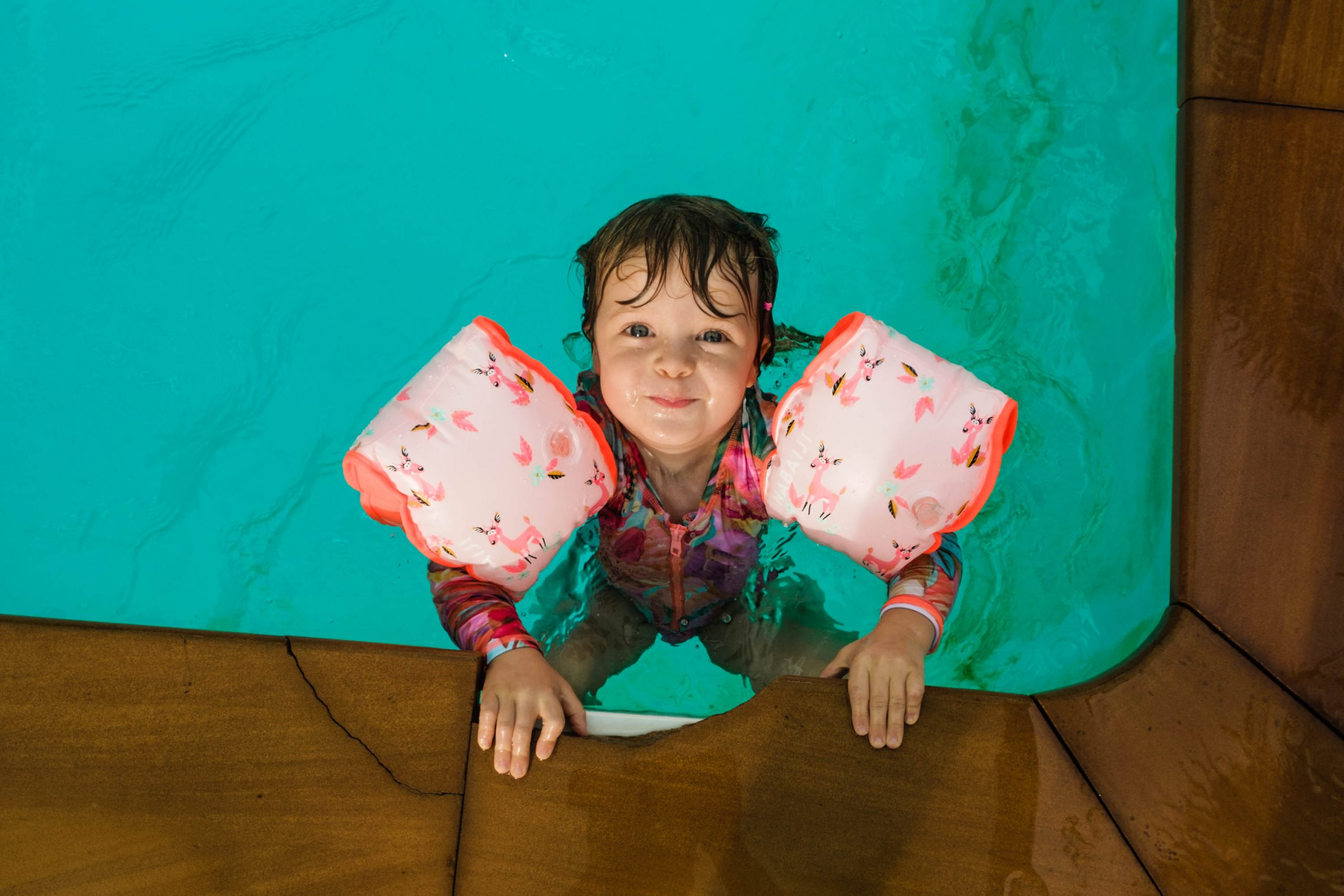
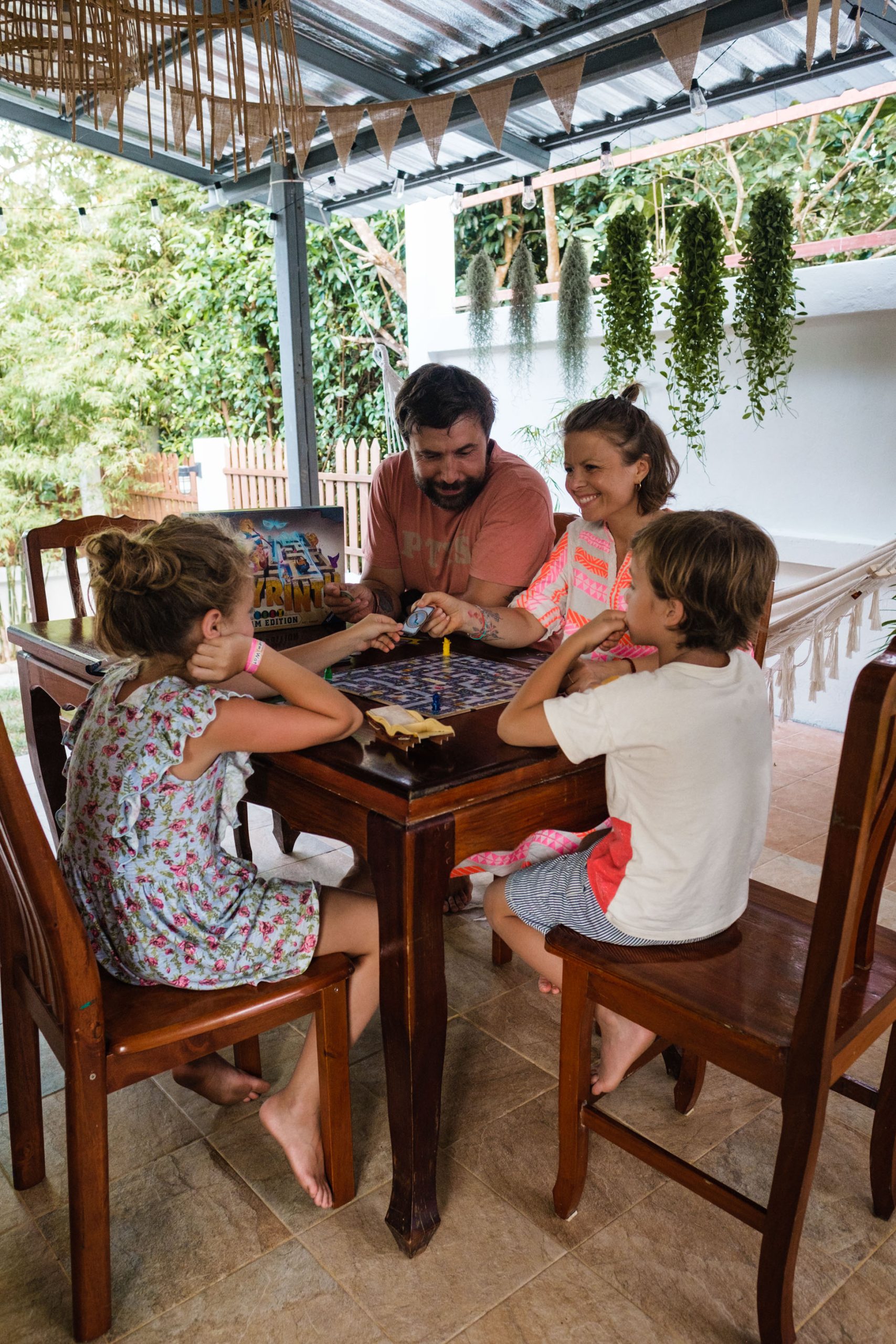
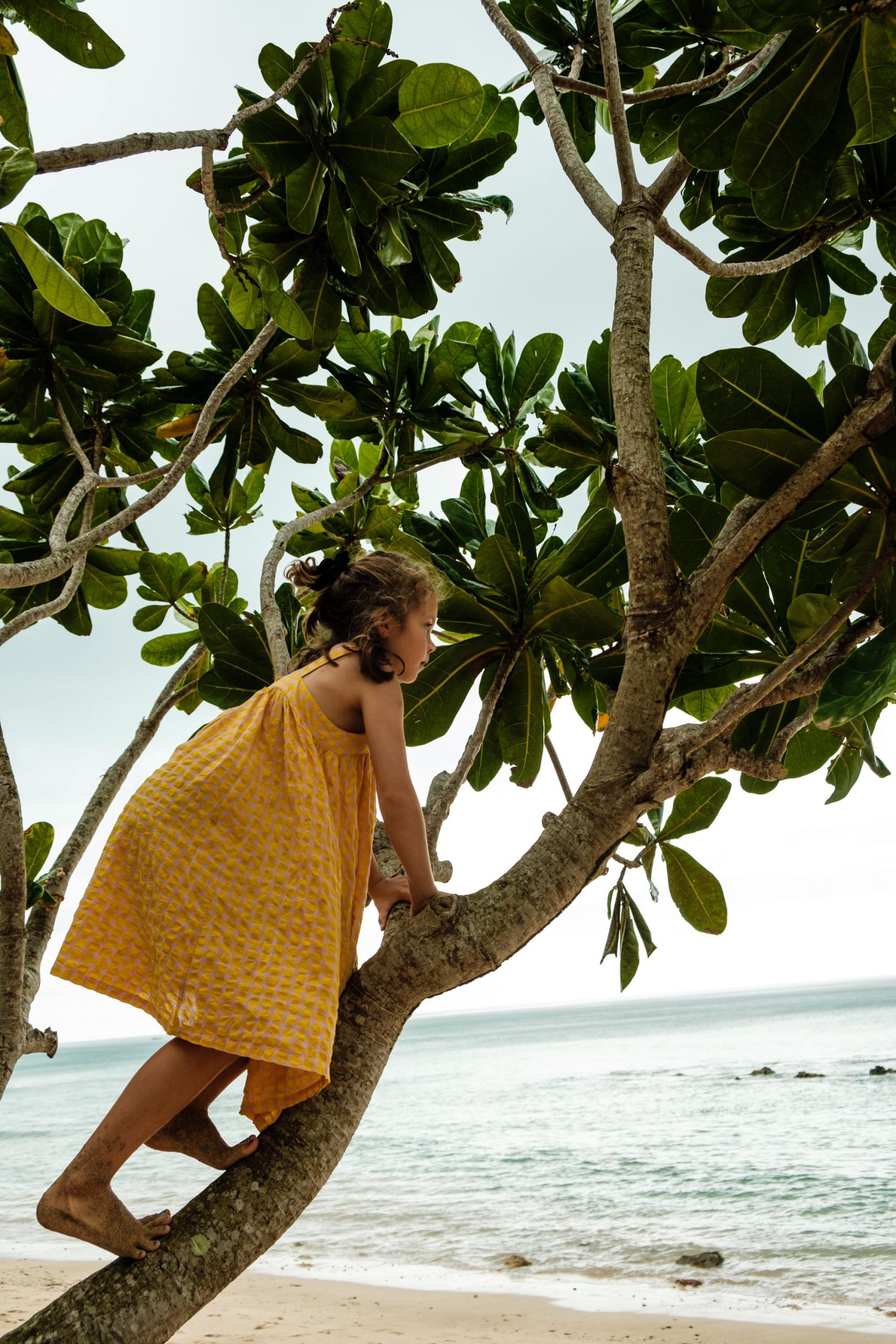


★★★
The platform is online, so does it mean additional screen time?
My initial concern about transitioning to homeschooling and using the Platform was that our children would spend a lot of time in front of the computer screen. However, that concern was dispelled after just a few days of using it. Completing the lessons for the entire week takes our children about an hour (for 1st grade) to two hours (for 2nd grade). They usually sit down for lessons once or twice a week. Moreover, not everything is online. Each week, we can download PDF worksheets with review exercises from the platform.
If we add to that 30 minutes of daily screen time (cartoons, games, animated shows – each child chooses what they like within the limits we set), about an hour of watching nature documentaries in the morning (we have a rule that children can only watch documentaries related to animals, the human body, or nature), and one or two movies on the big screen on weekends, plus some math games online, I believe we have achieved a reasonable balance.
Transitioning from a “no screen” philosophy to learning how to use technology
Moreover, the more I observe how our reality is changing, how new technologies are becoming more integrated into our daily lives, the more I am convinced that it’s not just about screen time. I used to strongly advocate for an unplugged childhood or a “no screen” philosophy.
Now, as I read more about this topic, I realize that the competence I want to equip our children with is the ability to use new technologies in a balanced way. After all, AI technology is already becoming a part of our lives. And as our children grow older, this area will only expand further – the world of contemporary children is fundamentally different from that of parents born in the 80s and 90s.
For today’s children, checking everything on the Internet or communicating with friends and family on social media is as natural as watching cartoons and listening to the radio was for us when we were young. The important thing is to find a balance between screen time and time spent offline.
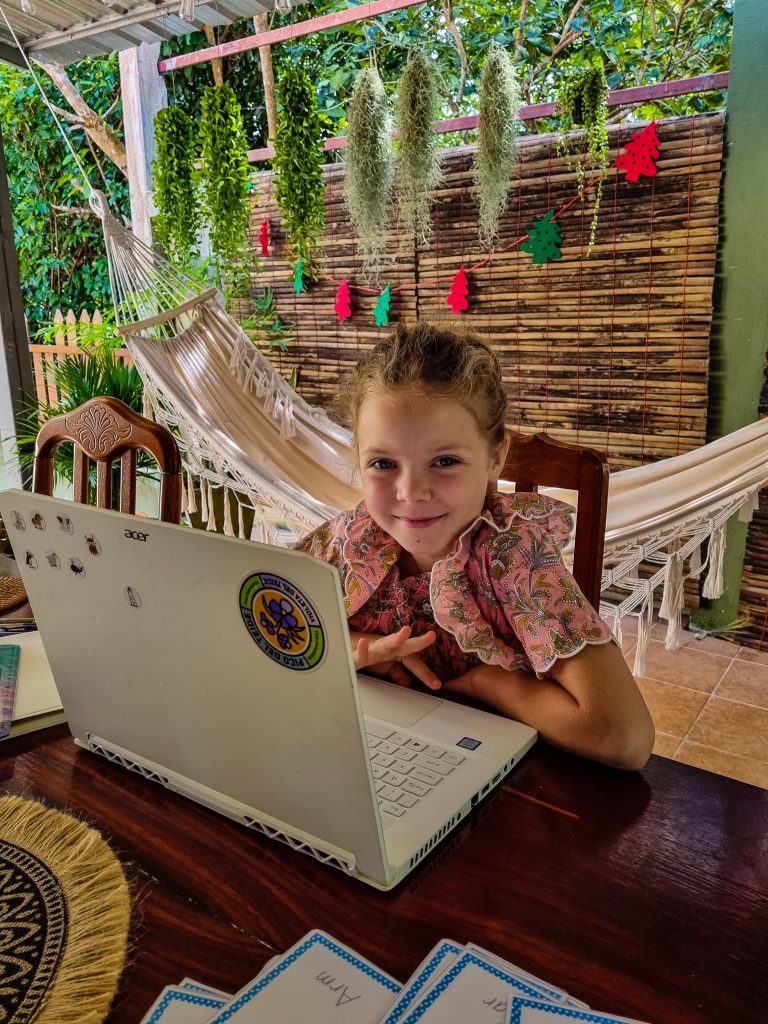
★★★
Do our children lack contact with peers?
This is one of the common myths that still persist among people who have little exposure to homeschooling. When we moved to Thailand, we also had concerns about whether our children would miss their school and preschool friends and how they would adapt to the new environment. We wondered if they would miss having Polish-speaking friends.
Initially, Mania and Jas had a strong need to maintain constant contact with a few close friends from school. They would call each other on WhatsApp and Messenger, wondering what their schoolmates were doing at that moment.
Now, after 5 months, the children only call their closest friends whom they have known since birth. They also maintain regular contact with important adults in their lives, such as our friends and family. They rarely call their school peers. It seems that the relationships that are being nurtured by both sides have survived, both ours and the people who stayed in Poland.
What do we do here to ensure that our children have contact with other children?
From the beginning, we knew that we wanted our children to have regular contact with other children and adults on the island. That’s why we immediately enrolled them in a small Canadian-Thai school with alternative education on Koh Lanta (you can read more about it HERE). Our three children not only learn English and Thai in practice but also build daily relationships with children from the UK, Canada, Thailand, Israel, Norway, and Poland.
We also make an effort to connect with other Polish families with children who, like us, have moved to Koh Lanta. We also form friendships with adults who don’t have children. We are creating our own small community, our own village, as Agnieszka Stein wrote about.
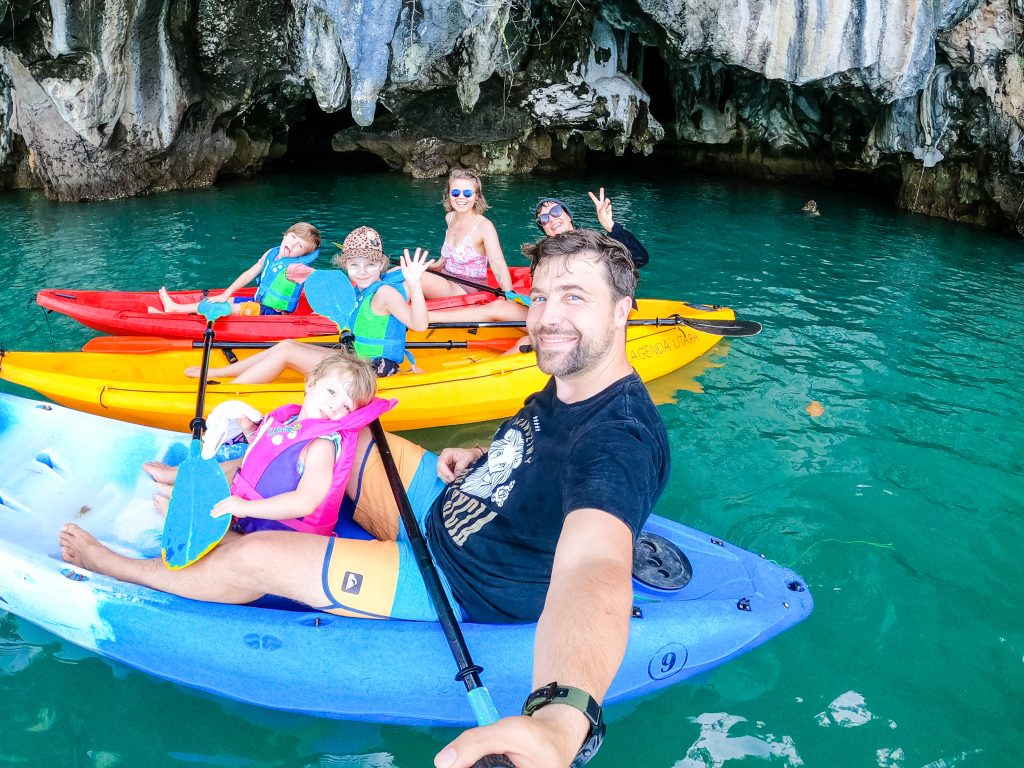
★★★
How will our homeschooling continue in the future?
Will our life always look like this? I don’t know. For now, I can confidently say that this lifestyle suits us very well. We are testing it, experiencing it, getting familiar with it from various angles. The hardest part was stepping out of our comfort zone. Now, we simply feel good. We see how our children are flourishing, how they have found their place in this new environment, and how they are making the most of the opportunities we have here. We also feel that our minds are rearranging important pieces and our priorities are shifting.
But knowing myself and my husband Mario, we will probably say “let’s check” after some time and make a decision about what’s next. There are still so many places and worlds we want to explore. And that’s the most beautiful thing about it all.